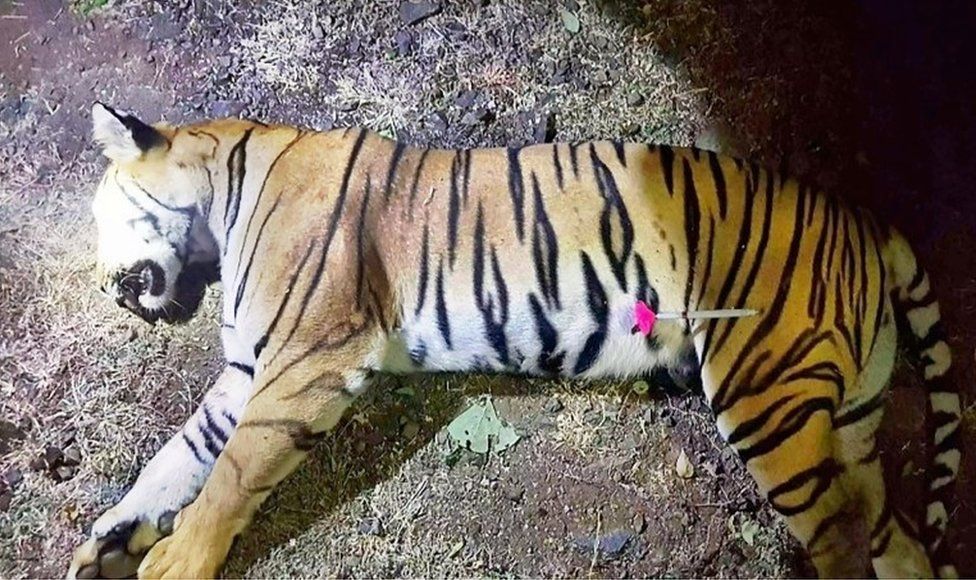India tiger cubs 'may become man-eaters'
- Published

Indian forest officials are trying to capture two orphaned tiger cubs amid fears they may become man-eaters, authorities have told the BBC.
It is believed their mother, who was shot dead in the state of Maharashtra after a major hunt this month, had killed 13 people.
The six-year-old tigress had evaded capture for two years.
Her killing angered conservationists and it is hoped the 11-month-old cubs can be tranquillised and caught.
"They need to be rescued because they can become a potential threat to human beings," AK Misra, the principal chief forest conservator of Maharashtra, told the BBC.
Mr Misra said for now the cubs could survive by hunting small wild animals in the forests of Yavatmal.
"But because this area is not a national park nor is it a proper forest, they may go for easy prey in the nearby human settlements. And we want to pre-empt that potential danger, " he said.
He said officials had traced the cubs' location, but because of the difficult terrain their capture was taking some time.
"We are waiting for the right opportunity to tranquilise them. We are not in hot pursuit; we want to make sure that we do this successfully."
The hunt for the tigress, known as T-1, involved more than 100 camera traps, horses and goats tied to trees as bait, round-the-clock surveillance from treetop platforms and armed patrols.
Wildlife officials also brought in bottles of the cologne, Obsession for Men by Calvin Klein, which contains a pheromone called civetone, after an experiment in the US suggested that it could be used to attract jaguars.
In August, the tigress killed three people around the town of Pandharkawada in Yavatmal district and left more than 5,000 residents fearing for their lives.
Locals were concerned the cubs might have tasted human blood, although Mr Misra said this was unclear.
"Once they are captured, the relevant authorities and personnel will meet and decide how and where these cubs will be rehabilitated," Mr Misra said.
India is home to 60% of the world's wild tigers. There are more than 200 in Maharashtra, but only a third live in the state's 60 protected areas, including sanctuaries, natural parks and tiger reserves.
Conservationists say their natural habitats are shrinking because of human encroachment.
Human-wildlife conflict is seriously on the rise in India.
Government figures show that every day one person is killed by elephants or tigers.
- Published12 October 2018
- Published21 January 2015